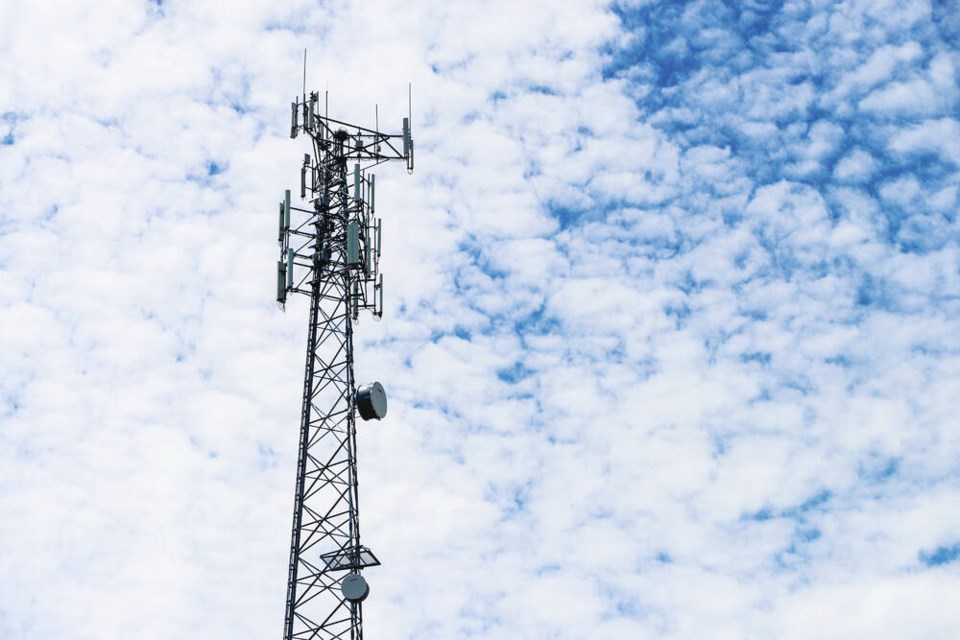Customers of Telus and Bell won’t have access to the new cellular service between Sooke and Port Renfrew until those companies sign a roaming agreement with Rogers, which built the 70-kilometre network.
The network went live in May, and all cellphone users can call 911, but only Rogers customers can use the line for other calls along the remote portion of Highway 14 that includes the communities of Jordan River and Port Renfrew, as well as French and China Beach provincial parks and the Juan de Fuca Marine Trail.
“People are frustrated if they’re Telus or Bell customers,” said Capital Regional District director Al Wickheim, who represents the Juan de Fuca Electoral Area. “I think a lot felt that once the line was done, everyone would have service.”
According to an email sent to Wickheim by a Rogers Communications representative, wireless service is available to customers of any Canadian wireless provider that has opted in to domestic roaming.
And so far, Telus and Bell — Canada’s other major carriers — haven’t opted to roam with Rogers on the new line.
Cindy Grauer, with government relations in B.C. for Rogers, said in a statement that all the major wireless providers are required by the Canadian Radio-Television and Telecommunications Commission to make their networks available to Canadian wireless companies that opt in to domestic roaming.
The companies that opt in must compensate the owner of the network they are roaming on, she said.
“Bell and Telus roam on each other’s networks, but have not opted in to roam on any others,” Grauer said in an email. “This is why Bell and Telus customers cannot get service on Highway 14.”
Grauer said Rogers is not preventing Bell and Telus from utilizing the service. “It is their choice.”
Telus and Bell gave no indication of when — or even if — they would opt in. Telus said it’s looking at options to provide wireless service to the highway corridor between Sooke and Port Renfrew, and will “reach out with an update when we have more to share.”
Bell isn’t committing at this point, either. In a statement, the company said it “continually evaluates opportunities to expand cell service for our customers, including working with partners in areas where we don’t have our own infrastructure,” but has no updates on “this stretch of Highway 14.”
Rogers did not respond to requests for comment on what sharing agreements might look like.
In April 2021, the provincial government announced that the infrastructure would be in place by October 2021 to provide the wireless service needed by residents, search-and-rescue operators, and the thousands who use the trails and beaches.
But the project was fraught with delays as construction of the seven towers — ranging from 40 to 60 metres high — and the associated hardware hit several snags, including labour and supply-chain issues and construction delays associated with access, power-line construction and environmental concerns.
The sites were rezoned by the Capital Regional District and involved several landowners, including First Nations and forestry companies.
The province spent nearly $5 million on the project led by Rogers Communications, which spent $695,000, according to Citizens’ Services Minister Lisa Beare when the line’s opening was announced May 5.
The provincial government said in a statement last week that it provided funding so all cell users would be able to make emergency 911 calls, but it’s up to other carriers to provide access to their customers for non-emergency calls. “Cellular providers like Rogers, Bell and Telus routinely arrange for roaming agreements on each other’s networks.”
Jeri Grant, alternate director for the Juan de Fuca Electoral Area, is hopeful Rogers and the other cellular companies will come up with some kind of roaming arrangement.
But for now, 911 and broadcast alerts work on all cellphones, regardless of what phone plan users have, Grant said. “If the province or federal government has to put out a broadcast intrusive warning like an Amber Alert, it will go to [all] phones.”
The CREST radio system has also installed its own hardware at the towers so repeaters go all the way to Port Renfrew, allowing police, fire, ambulance and the B.C. Conservation Officers Service to use their radios for the whole area.
Grant said “it would be really stupid” for the other carriers not to enter into a roaming agreement.
“If I were a Telus customer, I would probably end my contract and move over to Rogers,” she said. “Essentially, when you leave Otter Point, you don’t have cell coverage. You’re roaming over to the U.S.”
Chelsea Sheen, guest services manager at Wild Renfrew, which provides accommodations in the area, said there’s zero cell service for anyone other than Rogers customers in Port Renfrew, but everyone can get Wi-Fi at the company’s properties.
“Most people like having Wi-Fi. Others don’t even want to be in their rooms; they just want to be out hiking and they don’t care about cell service,” she said. “I think we’ve had one or two complaints about people wanting to do Zoom meetings, but they can do that in their rooms with Wi-Fi.”
Not knowing the full story has been frustrating, said Ron Gard, who lives in Victoria and goes to Port Renfrew every weekend.
Gard had a Telus phone through work, then changed to Koodo in January and finally changed to Fido, which is owned by Rogers, to get cell reception at the Port Renfrew Marina.
“Quite a few people I know have already switched to Rogers,” Gard said. “I phoned Telus and they said it would be a couple of years.”
https://public.tableau.com/app/profile/icbc/viz/VancouverIslandCrashes/VIDashboard



